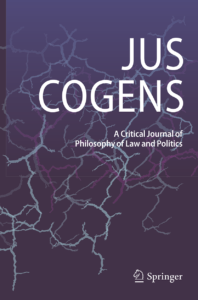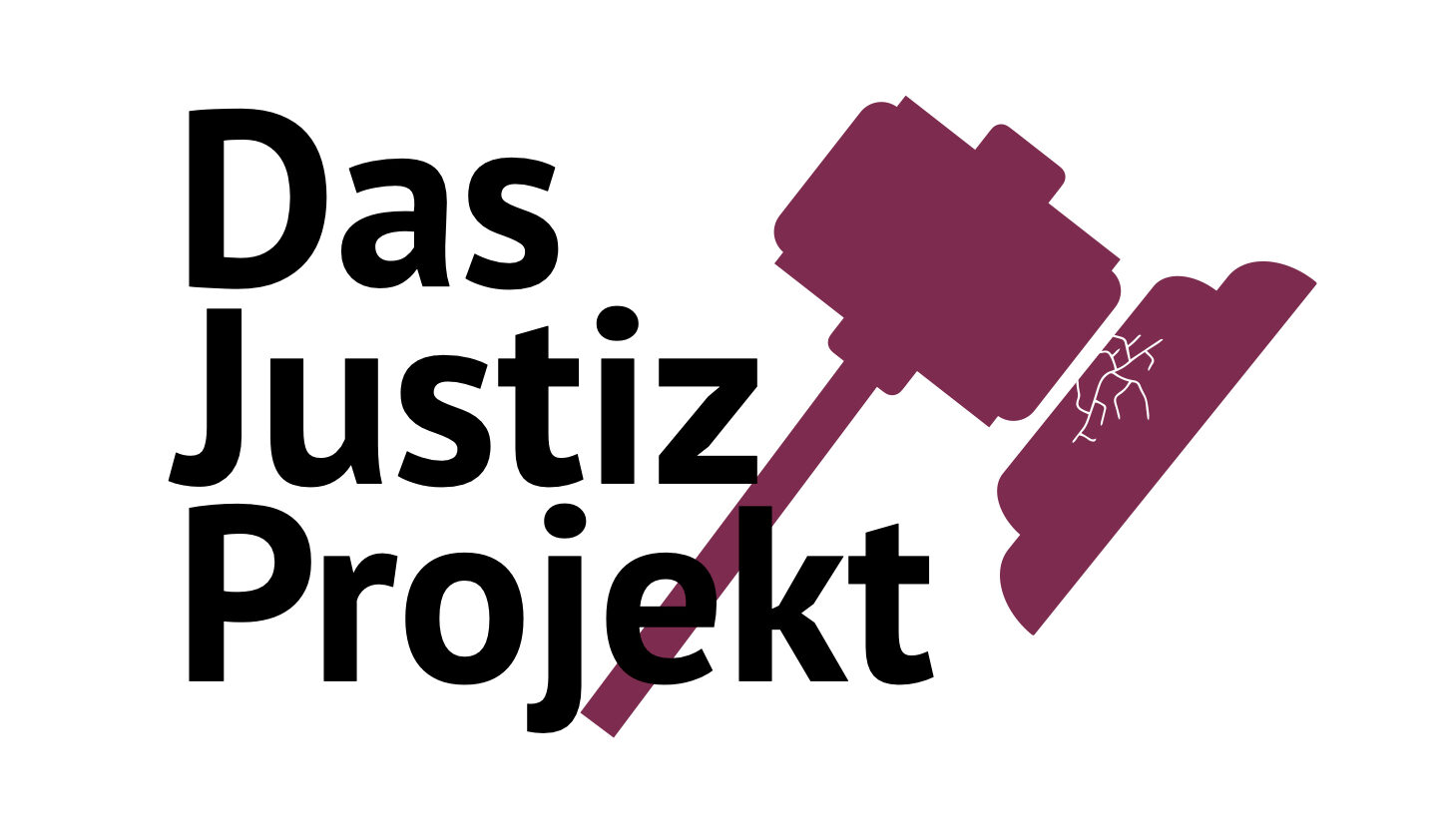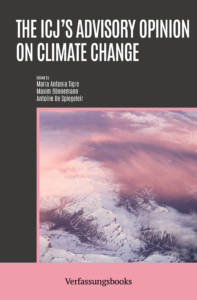Wenn Richter:innen schweigen
Warum Neutralität ein Ziel ist und kein Zustand
Continue reading >>When Judges Fall Silent
Why Neutrality is a Goal, Not a Given
Continue reading >>The Perpetual Interim
Bulgaria’s chief prosecutor has been exercising power without a valid mandate since 2023, even after the Supreme Court explicitly declared his authority expired. What looks like a technical impasse reveals a subtler form of constitutional erosion: power entrenching itself through interim arrangements, procedural improvisation, and cultivated legal uncertainty. The Bulgarian case shows how institutional capture can advance quietly, without open defiance, constitutional rupture, or triggering the EU’s usual rule-of-law alarms.
Continue reading >>A Draconian Return System
Unless the European Parliament puts up a fight to eliminate or amend the worst parts of the currently circulating draft regulation on a “common system for the return of third-country nationals staying illegally in the Union”, which looks unlikely, the EU may soon adopt a new approach. This draft regulation shows how far the EU has shifted towards positions of the far right, and how little it is interested in human rights and pragmatic solutions for rejected asylum seekers and other non-EU migrants.
Continue reading >>Immunising the Venice Commission Against Autocratic Contamination
The Venice Commission plays an important role in shaping standards of European constitutionalism. With greater influence, however, should come greater responsibility. As this post will outline, the Venice Commission suffers from one institutional flaw which concerns the method of selecting its members, a flaw which has been made worse by an unwillingness to enforce its own membership requirements and principles of conduct.
Continue reading >>Why US Sovereign Bases in Greenland Would Violate International Law
As the New York Times reported, President Trump and NATO have reached the framework of a deal that would grant the US sovereign bases over territories of Greenland. One of the officials present at the negotiations compared the proposed bases to the British Sovereign Base Areas in Cyprus. Establishing such bases constitutes a violation of international law and cannot validly be agreed to by Denmark or NATO.
Continue reading >>Two-Step Test Master of None
Within the recurring use of the two-step test in EU criminal judicial cooperation (and possibly soon in its civil counterpart), AG Richard de la Tour’s Opinion, delivered on 22 January 2026, suggests a new role for the test: ensuring that the execution of a EAW safeguards the proportionality principle under Article 49(3) CFR. While this development strengthens exceptions to mutual trust, it also exposes the test’s limits in addressing proportionality breaches, revealing an uneven protection of fundamental rights.
Continue reading >>The End of an Era?
“I don't need international law.” This statement by US President Donald Trump is likely to go down in history. European countries should now remember their strengths. Even under the new global political circumstances, Europe remains a player whose economic weight cannot be ignored for the time being. More importantly, Europe stands for a normative alternative that holds global appeal in contrast to the imperial-feudalistic US vision of order.
Continue reading >>Von personalisierter Werbung zur staatlichen Verfolgung
Die US-amerikanische Immigration and Customs Enforcement Agency (ICE) hat angekündigt, die “Ad-Tech- und Big-Data-Tools” privater Unternehmen für die Verfolgung vermeintlich illegaler Einwanderer nutzen zu wollen. Die Forderung zeigt in schonungsloser Offenheit, wie groß das Missbrauchspotenzial von Geschäftsmodellen ist, die auf massenhafter aggressiver Datenextraktion beruhen. Gepaart mit der ökonomischen Struktur des heutigen Internets und der Realität des Technologie-Oligopols in der Hand weniger Firmen entfaltet sich ein dystopisches Potenzial.
Continue reading >>Time to Rethink Locus Standi
The General Court dismissed the action brought by the Association of Jurists for Respect for International Law. JURDI requested the Court to declare that the EU institutions had failed to act in response to the situation in Gaza. Admittedly, the Court’s decision to deny locus standi is consistent with the case law under Articles 263 and 265 TFEU. However, it is high time the Court moves towards a participatory model of legality review that would allow for actions to be brought by non-governmental organisations in the public interest of human rights compliance.
Continue reading >>CURRENT DEBATES
Reflexive Globalisation and the Law
In October 2025, a new Centre for Advanced Studies was established at the Humboldt University of Berlin’s Law Faculty. Named “Reflexive Globalisation and the Law: Colonial Legacies and their Implications in the 21st Century” (RefLex), the Centre explores the premise that the globalisation of law and legal discourse has entered a reflexive phase: one in which law and knowledge production about law are less and less one-directional exports from or within the Global North but rather dynamic, multidirectional exchanges that confront colonial legacies, epistemic hierarchies, and enduring asymmetries of power. This blog symposium, co-edited by Philipp Dann, Florian Jeßberger, and Kalika Mehta, aims to present and extend these interactions to a broader, accessible dialogue with a wider community beyond the university setting. Featuring contributions from a range of different disciplines and regions, the symposium serves as a public prelude to its official launch, which can be watched live here.
Read all articles >>Wem gehört die Wissenschaft?
Wem gehört die Wissenschaft – und wem sollte sie gehören? Obwohl Wissen als öffentliches Gut prinzipiell unbegrenzt teilbar ist, wird der Zugang zu wissenschaftlichen Publikationen und Infrastrukturen durch ökonomische und rechtliche Strukturen beschränkt. Zwischen kommerziellen Verlagsmodellen, staatlicher Finanzierung und Community-getragenen Open-Access-Initiativen stellen sich grundlegende Fragen nach Eigentum, Verantwortung und Unabhängigkeit wissenschaftlicher Arbeit. Das Blog-Symposium „Wem gehört die Wissenschaft?“ greift diese Frage auf und beleuchtet Facetten der Organisation von Wissenschaft als Gemeingut, der Eigentums- und Machtverhältnisse im Publikationssystem und der Bedingungen offener und freier Wissensproduktion.
Read all articles >>ADVERTISEMENT
 Volume 7,
Volume 7,Issue 2
July 2025
JUS COGENS
-
Killing Hitler Word by Word: The Oath as Apocalyptic Lawmaking
GREGOR NOLL
-
Adjudicating Climate Protest as a Tool of Modern Republicanism
DMITRII KUZNETSOV
OUR LATEST PUBLICATION
Maria Antonia Tigre, Maxim Bönnemann & Antoine De Spiegeleir (eds.)
The ICJ’s Advisory Opinion on Climate Change
The International Court of Justice’s Advisory Opinion on Obligations of States in Respect of Climate Change marks the most consequential development in international climate law since the adoption of the Paris Agreement. Bringing together leading scholars and practitioners from across the globe, this book offers the first comprehensive and critical examination of the opinion, exploring its doctrinal foundations, normative implications, and potential to reshape global climate governance.
Discover the Open Access digital edition here.
PROJECTS
VB Security and Crime
In cooperation with:
VB Security and Crime is a cooperation of the Max Planck Institute for the Study of Crime, Security and Law (MPI-CSL) and the Verfassungsblog in the areas of public security law and criminal law. The MPI-CSL Institute is a member of the Max Planck Law network.
Das Justiz-Projekt

Weltweit gerät die unabhängige und unparteiische Justiz unter den Druck des autoritären Populismus.
Wie verwundbar ist die rechtsprechende Gewalt in Deutschland – im Bund und in den Ländern?
VB Security and Crime
In cooperation with:
VB Security and Crime is a cooperation of the Max Planck Institute for the Study of Crime, Security and Law (MPI-CSL) and the Verfassungsblog in the areas of public security law and criminal law. The MPI-CSL Institute is a member of the Max Planck Law network.




